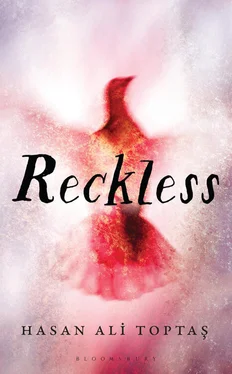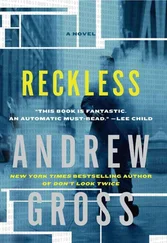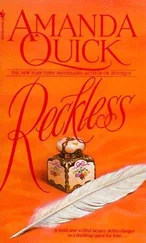‘I couldn’t make it out,’ Ziya replied sternly. ‘He’s probably delirious.’
His answer rubbed the villager up the wrong way. He looked around him, as if to say, ‘Tell me. Was I wrong to ask?’ So Ziya sat on the divan saying nothing, waiting for the villagers to leave. As curious as he was to find out what had happened, he asked nothing. At nightfall they got up at last. ‘May it pass soon,’ they said, as they filed out of the room. ‘May God preserve him from worse.’
When they had all gone home, Ziya turned back to Kenan and, in a reproachful voice, he said, ‘And you told me Kâzım the Bellows Man was a very good person. Endlessly helpful. And merciful. And honest. You had all sorts of good things to say about him. I remember! You even said he loved you very much, that he’d move heaven and earth for you. You said all that, didn’t you?’
In a shaky voice, Kenan said, ‘He’s all those things.’
He was staring at the wooden beam in the corner. His eyes didn’t move. There was not a trace of anger in his face. Only pain.
‘So then tell me,’ Ziya said. ‘Why did this honest and merciful man knife you?’
‘We had an argument,’ said Kenan. ‘A pointless argument. Just this once. There’s no need to dwell on it. I am not opening a case against Kâzım the Bellows Man.’
‘Fine,’ said Ziya. ‘But what was the cause of it?’
Cevriye Hanım came into the room, smoothing her white headscarf. She sat down at Kenan’s side.
‘Come on now. Answer your friend. Why were you arguing with that lout?’
Propping his elbows, Kenan rolled over on his side. He placed his free hand as close to his wound as he could manage.
‘Please, Mother, let’s just leave it. It just happened. That’s all. Don’t go and say a thing about this to Kâzım the Bellows Man. Don’t ask him why and don’t ask him how. We’re putting an end to it, here and now.’
Cevriye Hanım raised her eyes to look at her son.
‘In all the commotion we forgot about Uncle Cevval’s supper. The poor man is waiting there hungry.’
‘I can take him something,’ said Ziya. ‘Don’t worry.’
And so it was that Besim and Ziya took the copper tray over to Uncle Cevval that evening. They sat him down on the divan and fed this man who seemed no more than a white shadow. After taking a few slow bites, he suddenly asked why Kenan hadn’t come.
‘He’s feeling poorly,’ Besim said each time.
When they were leaving the house, Besim noticed the sheepdog lying at the foot of the wall opposite, and suddenly he went stiff. Walking towards him a few steps with his arm upraised, he shouted, ‘Shoo! Shoo!’ But the dog did not budge. Its eyes glowed in the darkness as it blinked. Ziya pulled him by the arm. ‘Never mind, my boy,’ he said in a fatherly voice. ‘Best not to disturb the poor thing. Come on now, let’s go.’
Besim relaxed a little. Putting the copper tray under his arm, he set off down the lane with Ziya. It had been washed clean by the rain, and as they went, Ziya cast a few sidelong glances at the boy he had addressed for the first time as his son. It felt as if it were his own son at his side, almost.
Kenan couldn’t seem to get back on his feet, and so from then on it was always Ziya and Besim who took Uncle Cevval his meals. This meant that Ziya was now going to Kenan’s house several times a day, and each time he approached the door, he would imagine the moment when he’d set eyes on Nefise and Besim, and his heart would skip a beat. Leaving his shoes at the entrance he would always go first into Kenan’s room, of course. And at first Kenan would sit up in bed, looking paler every day — as pale as his uncle — and try to greet Ziya with a smile. But with time that smile faded. He would just lie there, lost in thought. Because he couldn’t walk. He couldn’t do more than hobble a few steps across his room. He would run out of energy, and go staggering across the room to fall back into bed.
And that was why, every once in a while, Ziya would take him by the arm and lead him out to the courtyard for a bit of fresh air. They’d sit there side by side in those white plastic chairs for hours on end. If it began to rain, or snow, they just threw a few blankets over their shoulders. In fair weather Kenan would sometimes get a rush of energy and try to walk. He would hobble to the mulberry tree and back again, his grimace changing shape as he went. Once, when he was hobbling along like that, he stopped and placed his hand on his bad leg, and turned his head to look up at the mountains.
‘I saw it!’ he cried. ‘I actually saw it!’
Ziya jumped, just a little.
‘For God’s sake!’ he said. ‘You saw what?’
‘That shadow you said you saw, on the mountaintop!’
When he heard his uncle shouting, Besim came running out of the house. He, too, looked up at the mountain.
‘Can you see it too?’ Ziya asked him.
‘No,’ said Besim. ‘I don’t see anything different. They’re still the same mountains.’
‘Maybe they’re building an observation tower,’ Kenan murmured.
Slowly he limped over to a chair next to the wall, holding his right leg as he went. He spent the rest of the day there, and each time he looked up at the mountain, it was as if he was doing so for the first time, or had forgotten where he was looking — as if his soul had flown far away and he was waiting now for its return. He would stare at it for many long minutes, unmoving, and unblinking.
A week after Kenan first noticed the shadow, it snowed in the village for an entire day. And soon every courtyard, every lane and vineyard and hill and mountain was as white as Uncle Cevval. The houses moved away from each other, as each sank into its own solitude, and sent up its own trail of grey smoke. Eager to see more, Kenan pulled himself along the walls to get outside the next day, and tried to walk in the knee-deep snow. It was late in the morning, and the courtyard was sparkling in the snow-light, almost, and as he went back and forth with a blanket hanging from his shoulders, he looked thinner and shakier than he really was. Besim was sitting in front of the door, a cardigan on his shoulders. He was looking at the mountains, lost in thought.
And that was the day that Kenan fell, right there in the courtyard, and died.
They washed him with their tears and the water they boiled in sooty cauldrons. They wrapped him in a shroud and over this they draped a green rug with golden tassels at each end. When they left the courtyard with that green-covered coffin, Ziya was amongst the pallbearers, but after he had gone a few steps, one of the villagers had to come to take his place. Moving with difficulty through the drifting snow, they left the village with a large and silent crowd behind them. When the pallbearers turned past the sheep pens to climb up the hill towards the barn, Ziya didn’t know what to think. He looked wildly at those around him. But they continued flowing past him, their grief-stricken faces half hidden by their caps. They were purple from the cold. On they went up the hill, losing their balance from time to time as they struggled to keep up with the coffin.
Fifteen or twenty metres beyond the barn, just beyond the hedge, they entered the cemetery on the other side of the hill. In stops and starts, they carried the coffin to the grave they had already prepared. Ziya was only able to throw three shovels of earth over it; when his eyes filled up with tears, one of the villagers came and took the shovel from his hands. Ziya moved to the back of the crowd, and watched the rest through tears. After the grave had been closed, the mourners began to disperse, and he followed after them hopelessly, struggling through the snow. Sometimes, when he stumbled into a ditch or a drift as high as a gravestone, he sank into it. And then, even as he struggled to get back on his feet, he would, without willing it, look back at those snow-covered gravestones, his eyes brimming with tears. Once, when he looked back like that, he saw a gravestone behind the almond tree, and there he saw the name Hayati. That reminded him of Hayati of Acıpayam, of course. And his insides began to tingle. He could almost hear him talking to him, from inside that outhouse behind Seyrantepe. Just then, Ramazan the Grocer came up and reached out a hand to help him out of the ditch. And that is how they ended up walking side by side in silence. When they reached the bottom of the hill, Ziya slowed down to look back at the cemetery. Then he said, ‘I had no idea the cemetery was that close to my house.’
Читать дальше












